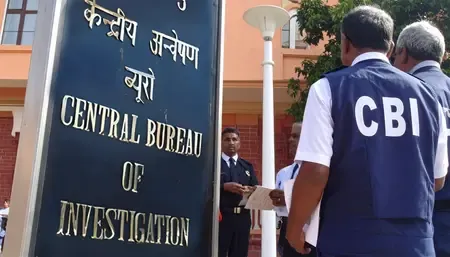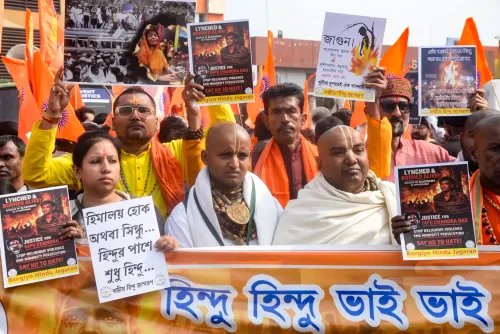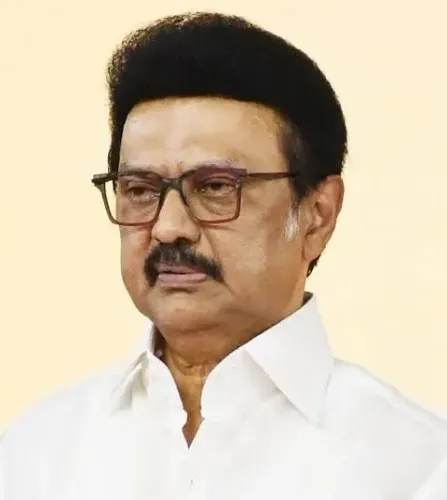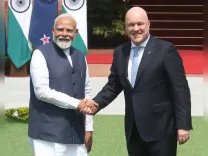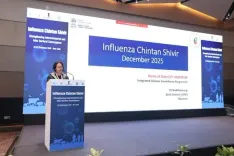How is ONOE Designed to Save Manpower and Resources?
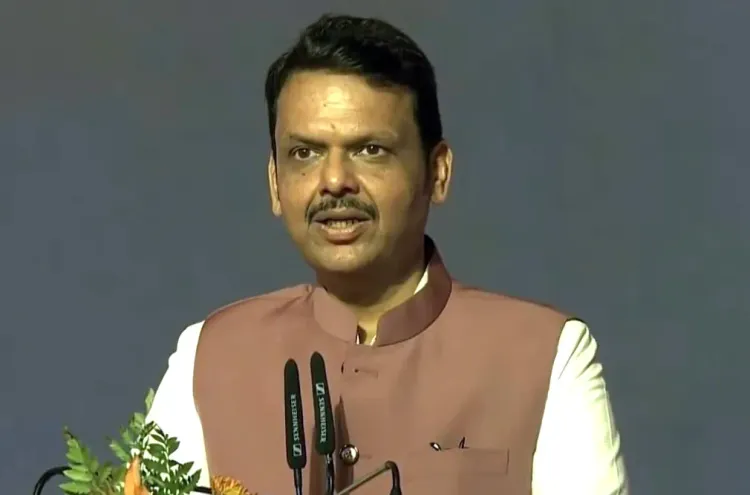
Synopsis
Key Takeaways
- ONOE aims to enhance efficiency by synchronizing elections.
- Frequent elections disrupt academic activities in educational institutions.
- Significant financial costs are associated with conducting elections.
- Police duties may be compromised due to election-related responsibilities.
- Meticulous planning is essential to mitigate disruptions in various sectors.
Mumbai, June 3 (NationPress) The BJP-led MahaYuti administration in Maharashtra has expressed robust support for the adoption of the 'One Nation, One Election' (ONOE) framework, asserting that it will promote enhanced efficiency and governance.
“ONOE is a framework intended to conserve both manpower and resources. The occurrence of frequent elections necessitates repeated mobilization of personnel and materials, which disrupts the regular operations of the education sector,” stated the Maharashtra government in its submission to the Joint Committee on the Constitution (129th Amendment) Bill, 2024, and the Union Territories Laws (Amendment) Bill, 2024, presided over by Lok Sabha member P.P. Chaudhary.
“While ONOE seeks to optimize the electoral process and possibly diminish the frequency of elections, the extensive scale of synchronized national and state elections would require the mobilization of an even larger workforce. If a significant number of university and college staff are called upon for these duties, even if less frequent, the effects on academic activities during those periods could be more severe and prolonged. Meticulous planning and consideration are crucial to alleviate disruptions to the academic timetable under such a system,” the state government contended.
The government further emphasized that the regular deployment of teaching and non-teaching staff for election responsibilities adversely impacts the routine academic functions of universities and colleges.
It hampers teaching, research, examinations, assessments, and admission processes, ultimately compromising the quality of higher education.
The government articulated that the assignment of teaching and non-teaching staff from universities and colleges for frequent election duties across various bodies, including municipal councils, Assemblies, and Parliament, undeniably poses significant negative consequences on the standard academic activities within higher education institutions.
“Maharashtra’s higher education department employs approximately 37,199 teaching and 39,252 non-teaching staff across 15 universities, 1,228 government-aided colleges, and 28 government colleges.”
“Utilizing this workforce for election responsibilities disrupts academic processes, disturbs the academic calendar, and critically affects the core functions of these institutions. Given that a considerable number of vacancies exist among teaching and non-teaching faculty at any given time, the assignment of available staff for election duties detrimentally influences the operation of these institutions,” it reiterated.
The government clarified that it has no objections to the deployment of teachers, particularly from schools, as polling officers for one or two days during actual polling as part of their civic obligations.
“However, our primary concern pertains to the extended deployment of teachers as Booth Level Officers. This role spans several months. Such responsibilities significantly hinder teachers' capacity to meet their primary academic duties, especially during crucial periods in the school calendar,” the government expressed.
Regarding the deployment of police personnel for frequent elections, the government noted that it adversely affects the force's standard law and order responsibilities within the state.
“Frequent elections negatively influence investigations and crime prevention, serving of summons and execution of warrants, escorting prisoners for trial, effective traffic management, and other routine police operations. As police officers are engaged in election-related duties many days before and after the polls, the occurrence of frequent elections at various times severely hampers police effectiveness.”
“To mitigate such negative impacts, it would be beneficial if different elections are held concurrently (through various phases), which would lessen the burden on police deployment and naturally diminish the impact on daily police operations,” the government advocated.
According to the Maharashtra government, it incurred expenses amounting to Rs 1,295.43 crore for conducting Lok Sabha elections. Of this amount, Rs 315.17 crore was allocated for manpower deployment, Rs 12.10 crore for hiring venues, Rs 67.51 crore for vehicle rentals and voting machine deployment, and Rs 900.65 crore for other expenses. The election expenditure represented 0.049 percent of the state’s nominal GDP.
During the 2019 Assembly elections, the Maharashtra government expended Rs 1,523.27 crore, with Rs 317.24 crore allocated to manpower deployment, Rs 8.70 crore for venue rentals, Rs 68.17 crore for vehicle rentals and voting machine deployment, and Rs 1,129.16 crore for other expenses. The election expenditure constituted 0.057 percent of the nominal GDP.
In the 2024 Lok Sabha elections, the government spent Rs 2,114.66 crore, including Rs 332.69 crore on manpower deployment, Rs 10.10 crore for hiring premises, Rs 149.79 crore for vehicle rentals and voting machine deployment, and Rs 1,622.08 crore for other expenses. The election expenditure accounted for 0.080 percent of the nominal GDP.
For the 2024 Assembly elections, the government allocated Rs 2,252 crore, with Rs 348.19 crore on manpower deployment, Rs 7.20 crore for venue rentals, Rs 16.79 crore for vehicle rentals and voting machine deployment, and Rs 1,770.11 crore for other expenses. The election expenditure was 0.085 percent of the nominal GDP.
(Sanjay Jog can be reached at sanjay.j@ians.in)


